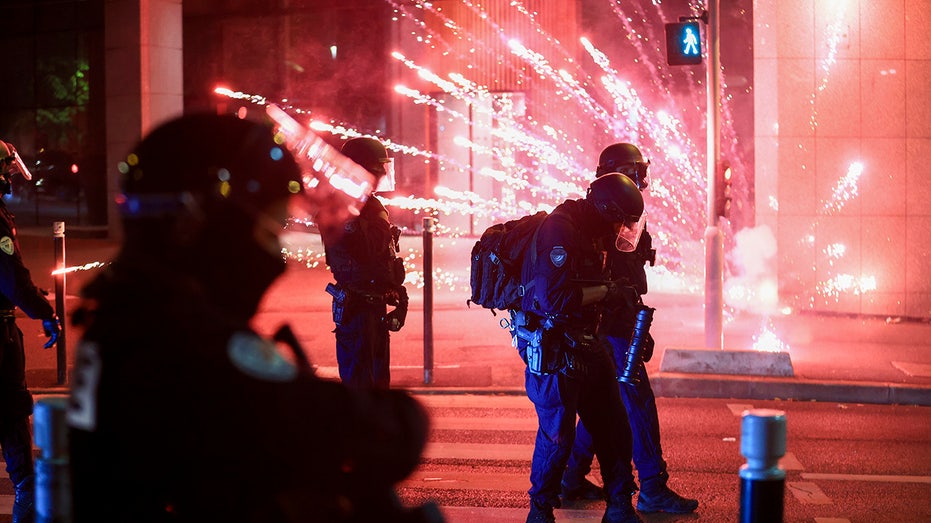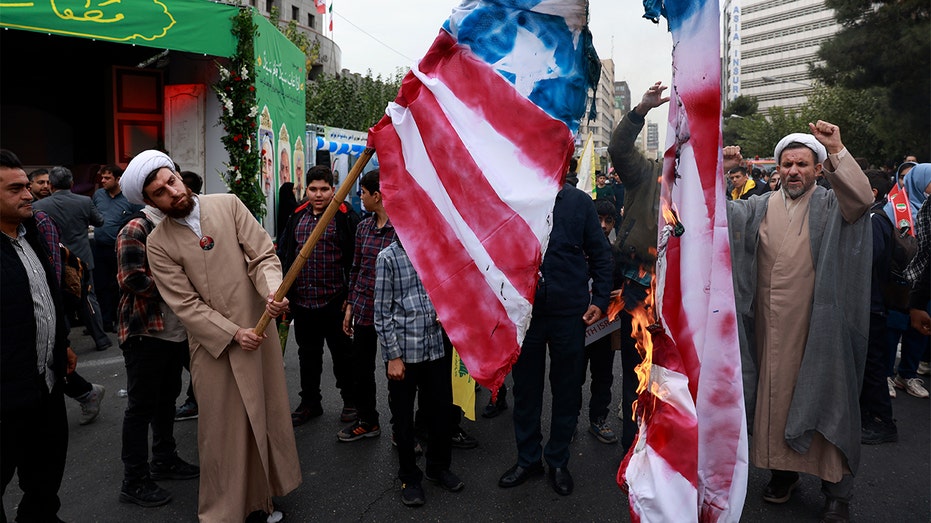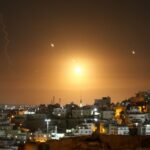The French government has banned firework sales ahead of Bastille Day celebrations as the country still reels from widespread anti-police riots.
“In order to prevent the risk of serious disturbances to public order during the July 14 festivities, the sale, carrying, transport and use of pyrotechnic articles and fireworks are prohibited until July 15 inclusively throughout the national territory,” a government decree published Sunday in the Official Journal of the French Republic read.
The decree does not apply to professionals with the required approvals and authorizations or public authorities set to put on firework shows celebrating Bastille Day.
In an interview Saturday with the daily Le Parisien, French Prime Minister Élisabeth Borne vowed that the government would deploy “massive means to protect the French” during the two “sensitive days” of July 13 and July 14 amid concern that National Day could inspire a resurgence of riots.
France saw six nights of destruction, arson, looting, and rioting unleashed on multitudes of communities in the wake of the June 27 death of Nahel Merzouk, a 17-year-old of Algeria-Morocco descent, who was shot and killed by a 38-year-old motorcycle officer during a traffic stop in Nanterre, a suburb of Paris.
In what was considered the worst rioting in France since 2005, more than 3,700 people were taken into custody — including at least 1,160 minors — in connection to demonstrations following Merzouk’s death, France 24 reported, citing official government figures.
French President Emmanuel Macron has accused social media – namely TikTok and SnapChat – of playing a “considerable role” in encouraging copycat acts of violence. Prosecutors allege many of the young people acquired information on where to obtain incendiary devices from the platforms.
FUNDRAISER FOR FRENCH COP ACCUSED OF KILLING TEEN SURPASSES $1M AS VIOLENCE RAGES
On Saturday, The Wall Street Journal, in a piece recounting “The Checkered History of France’s Bastille Day Parade,” noted how in recent days the tanks that rumbled along the Avenue des Champs-Élysées in Paris – past viewing stands erected in advance of France’s national holiday – were not there to rehearse for the traditional July 14 military parade from the Arc de Triomphe to the Place de la Concorde but instead sent to quell “riots involving thousands of young people, mostly of North African descent” in the wake of Merzouk’s death.
Though the violence has subsided in recent days, officials estimated more than 800 law enforcement officers were injured and that the unrest has caused more than $1 billion in damages.
What was typically referred to in France as “les violences urbaines” — urban violence — the unrest in the wake of Merzouk’s death was unique in that it spread to small towns in the French countryside, the Associated Press reported. The mayor of the picturesque French town of Quissac, of just 3,300 people in the Gard region of southern France, detailed how a small group of people bombarded the local gendarmes’ barracks on Quai de la Gare road with powerful fireworks, denting its metal shutters and setting fire to a cypress tree.
“In the press and even on the TV news, it was mainly Paris and its suburbs, Lyon and Marseille that were talked about. But when you look, there were also incidents in a certain number of small communities,” said Philippe Van-Hoorne, the mayor of L’Aigle in Normandy, where fires were lit, cars torched, and police chased around after small groups of suspects. “Unfortunately, the increase of uncivil behavior, of violence, is developing even in modest towns like ours … It’s very hard to solve.”
The Associated Press contributed to this report.










